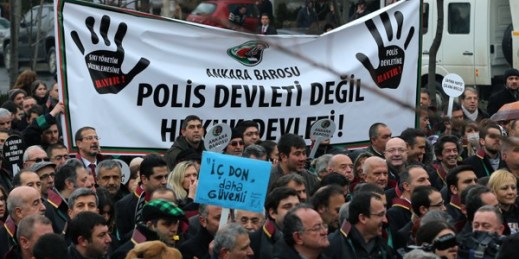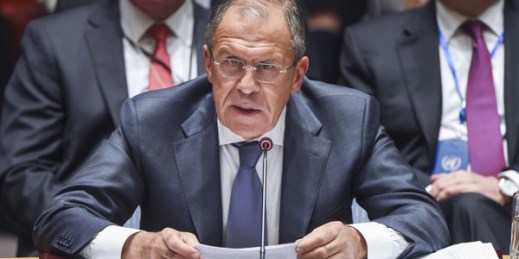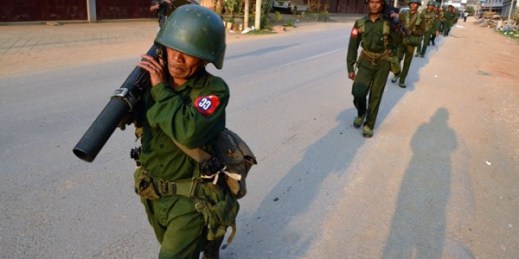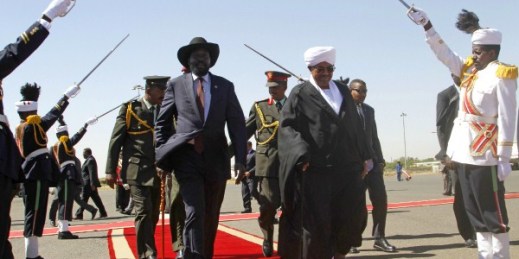
Two parliamentary brawls in as many days, filibusters, street demonstrations and a courthouse sit-in have characterized the controversy over a new domestic security bill that Turkish legislators look set to make law. The ruling Justice and Development Party (AKP) insists the security “package” is up to European Union standards and needed urgently. Critics argue it will create the legal conditions for a police state. They point in particular to two immediate concerns. First, Kurdish national leaders have warned the law could scuttle the government’s high-stakes peace process with the Kurdistan Workers’ Party (PKK) to end the three-decade insurgency that has […]



